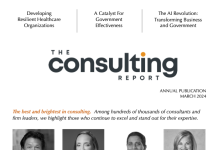Oliver Wyman and S&P Global Market Intelligence announced the launch of a new tool called Climate Credit Analytics last month, which is intended to aid companies in assessing the impact of climate risk as well as helping to implement practices that transition away from the use of natural resources.
Climate Credit Analytics includes coverage of 700,000 public and private companies across non-financial sectors globally that have carbon-intensive practices such as automotive manufacturing, airlines, mining, oil, power, and gas companies. The purpose of this collaborative report is to ease these types of industries away from heavy carbon emissions through the installation of more eco-friendly practices company-wide.
"We're excited to be launching Climate Credit Analytics with S&P Global Market Intelligence. The model suite will meet a key need of our clients to understand the impact of climate change on financial exposures, including for climate stress testing and TCFD reporting," said Ilya Khaykin, Partner and Head of Climate Risk for the Americas at Oliver Wyman.
The datasets from S&P Global that are to be utilized by the Climate Credit Analytics model include an in-depth analysis of industry-specific data including airline passenger volumes, oil, gas and coal production, and electricity capacity. This also includes a credit-scoring method that calculates company-level greenhouse gas emissions and the environmental impact that it will have over time.
This model is set to be refined and adapted with time, so that it can be utilized in real-time with the hopes of counteracting the major damage being done globally as a result of environmentally destructive industrial practices.
"The model suite will meet a key need of our clients, [which is] to understand the impact of climate change on financial exposures, including for climate stress testing and TCFD reporting. Building our analytics with S&P Global's extensive datasets results in a solution that generates deep insights on climate risk that will strengthen as more data becomes available," said Khaykin.

























